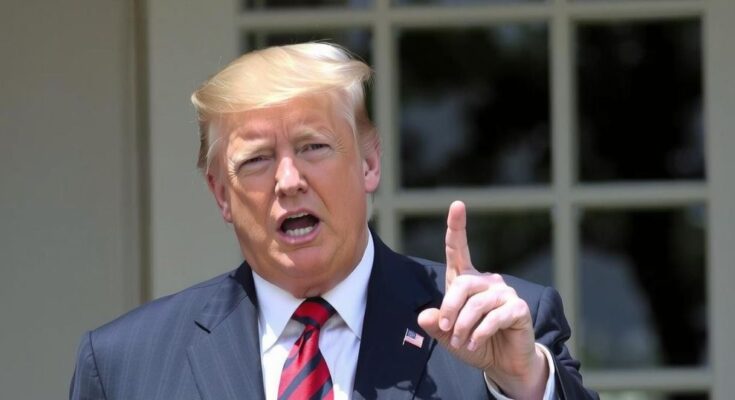President-elect Donald J. Trump faces a complex situation in Syria, potentially steering towards a non-interventionist approach. Trump’s historical disinterest in the region, coupled with support for similar sentiments among his advisors, including Vice President-elect JD Vance and director of national intelligence nominee Tulsi Gabbard, suggests a priority on disengagement as chaos continues in Syria.
President-elect Donald J. Trump is set to take office amidst a complex and perilous situation in Syria, a nation now largely governed by factions with ties to terrorism. His approach to this crisis remains ambiguous, potentially influenced by a variety of compelling opinions from advisors and international stakeholders. Historically, Mr. Trump has expressed a lack of enthusiasm for engagement in Syria, deeming it a ‘land of sand and death’ and voicing skepticism towards U.S. interventions in Middle Eastern conflicts. With ongoing chaos in Damascus, he has declared that the U.S. ‘should have nothing to do with it’ and urged a non-involvement strategy. This sentiment is echoed by Vice President-elect JD Vance, who has been critical of American foreign policy extensions. Furthermore, Trump’s choice of Tulsi Gabbard, a former congresswoman with similar anti-interventionist convictions, as his director of national intelligence suggests a potential shift towards a more isolationist foreign policy regarding the Syrian conflict. Overall, the prevailing narrative indicates that the incoming administration may prioritize detachment over involvement in Syria as it navigates the intricacies of this Middle Eastern crisis.
The ongoing civil war in Syria, which began in 2011, has resulted in a humanitarian disaster and a complicated geopolitical landscape characterized by various factions, including those with terrorist affiliations. President-elect Trump’s rhetoric has often supported a hands-off approach to foreign conflicts in the Middle East, attributing previous U.S. interventions to negative outcomes and labeling them as ‘endless wars.’ His past statements signal an inclination towards isolationism, which may shape his foreign policy decisions moving forward, particularly concerning Syria.
In summary, as President-elect Donald J. Trump prepares to address the challenges posed by the Syrian crisis, his historical aversion to military involvement and a preference for non-interventionist policies are likely to influence his administration’s stance. The endorsement of like-minded individuals within his cabinet and ongoing discussions with advisors could play a pivotal role in determining the United States’ future engagement in Syria.
Original Source: www.nytimes.com




